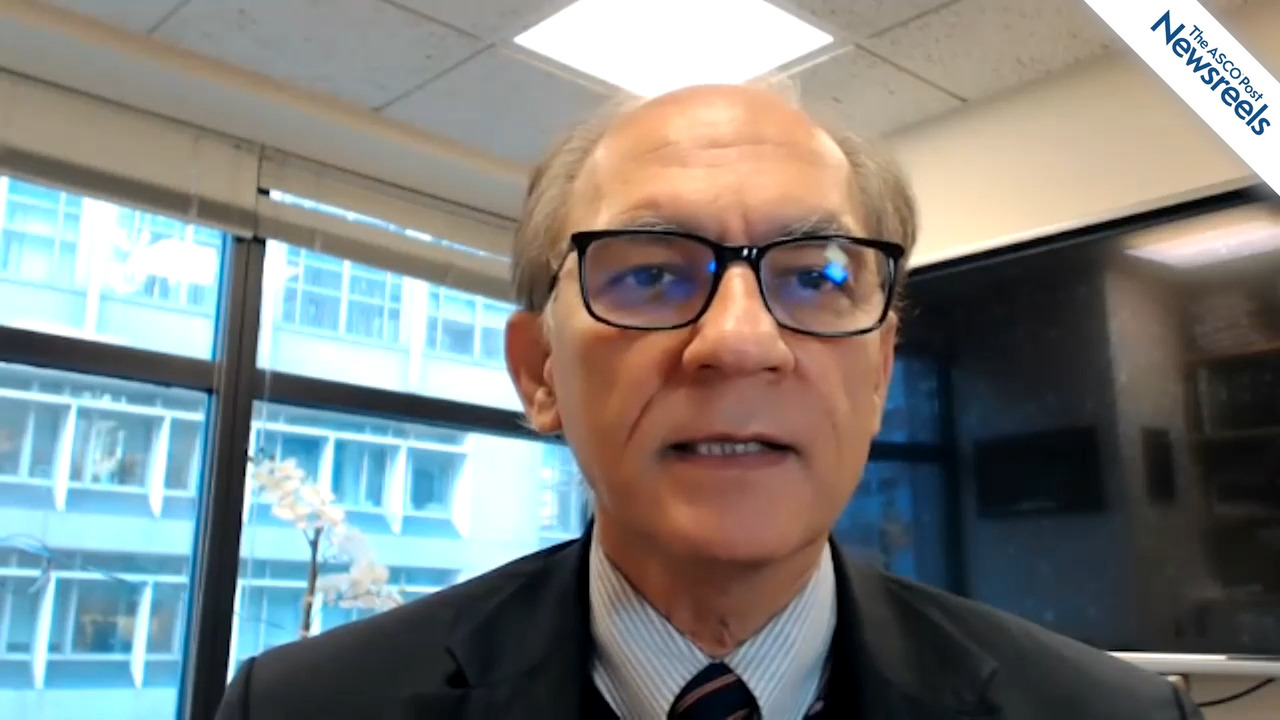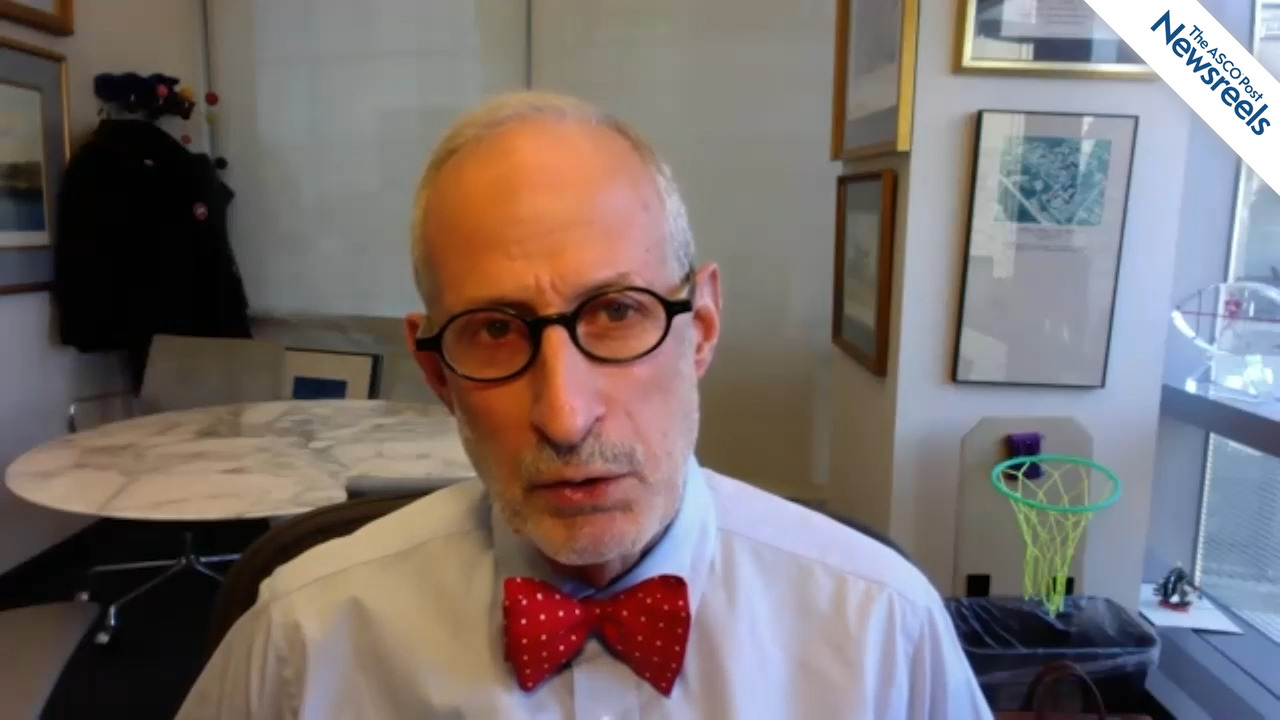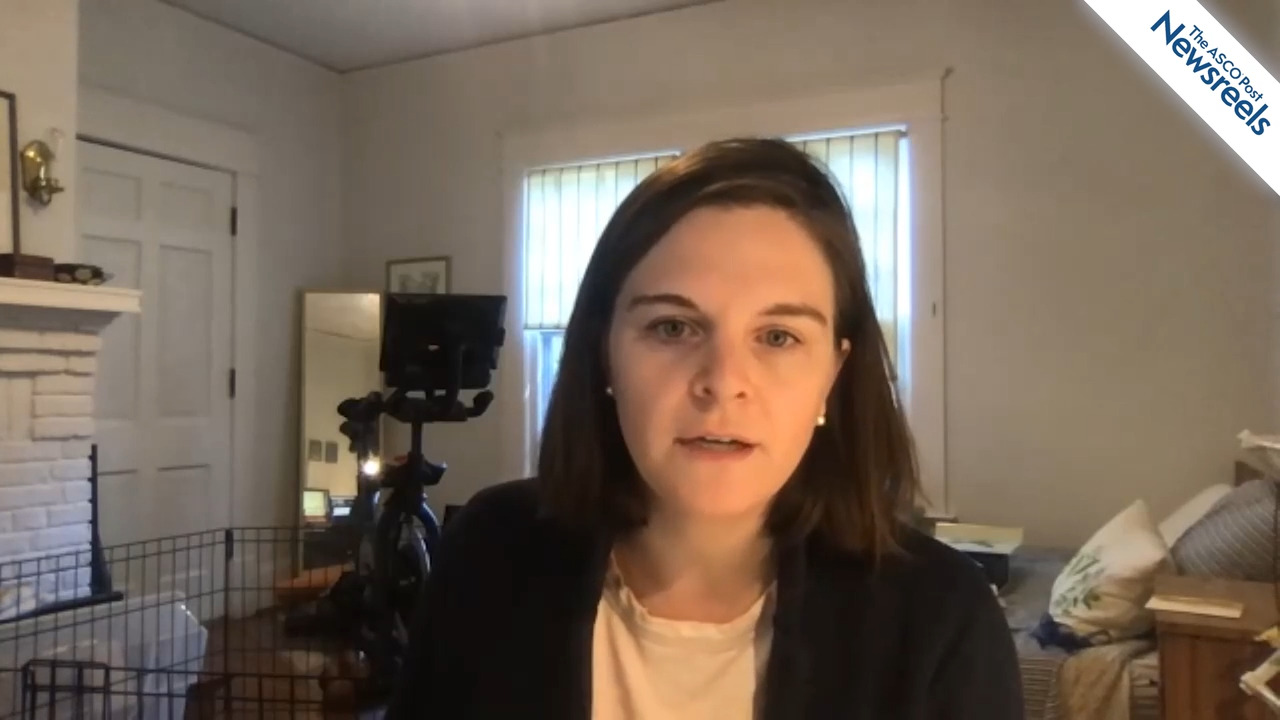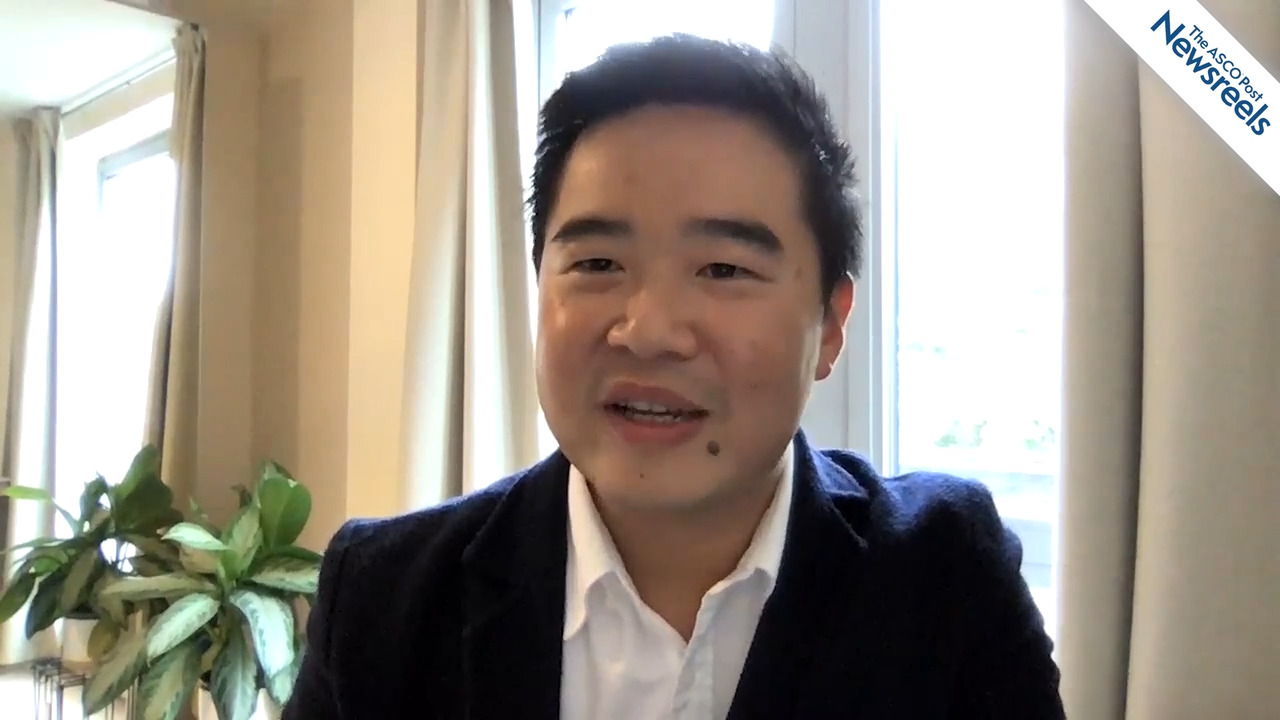Aggressive Supportive Treatment for COVID-19 May Be Needed in Patients With Hematologic Cancers
New research underscores the need for aggressive support of patients hospitalized with blood cancer and COVID-19, according to data presented at the 2021 American Society of Hematology (ASH) Annual Meeting & Exposition. Two studies of one of the largest data sets of patients with blood cancer...
Immunogenicity of COVID-19 BNT162b2 mRNA Vaccine Booster in Patients With Cancer Receiving Active Treatment
In an Israeli single-institution study reported in The Lancet Oncology, Ligumsky et al found that a booster dose of the SARS–CoV-2 Pfizer-BioNTech BNT162b2 mRNA vaccine given in August or September 2021 was immunogenic in patients receiving active cancer treatment. Antibody levels prior to and...
FDA Shortens Interval for Booster Dose of Moderna COVID-19 Vaccine to 5 Months
On January 7, the U.S. Food and Drug Administration (FDA) amended the emergency use authorization (EUA) for the Moderna COVID-19 vaccine to shorten the time between the completion of a primary series of the vaccine and a booster dose to at least 5 months for individuals aged 18 years and older....
NCCN Updates Recommendations on COVID-19 Vaccination and Preexposure Prophylaxis
Today, the National Comprehensive Cancer Network® (NCCN®) published significant updates to the expert consensus recommendations on vaccination and preexposure prophylaxis of COVID-19 for people with cancer. The NCCN Advisory Committee on COVID-19 Vaccination and Preexposure Prophylaxis meets...
Study Finds Fully Vaccinated Patients With Cancer and Breakthrough COVID-19 Infection Remain at High Risk for Severe Outcomes
A study evaluating the clinical characteristics and outcomes of fully vaccinated patients with cancer who had breakthrough COVID-19 infections indicated they remained at high risk for hospitalization and death. The report, published by Schmidt et al in Annals of Oncology, showed that fully...
Nikhil C. Munshi, MD, PhD, on COVID-19 Vaccine Effectiveness in Patients With Multiple Myeloma
Nikhil C. Munshi, MD, PhD, of Dana-Farber Cancer Institute, discusses the findings from a large nationwide Veterans Affairs study, which showed that, for patients with multiple myeloma, the effectiveness of the COVID-19 vaccine is reduced, likely due to patients’ immunosuppression. Dr. Munshi describes what next steps should be taken (Abstract 400).
Study Finds Third COVID-19 Vaccine Dose Effectively Boosts Immunity for Patients With Solid Tumors
Nearly 100% of patients with solid tumors have antibodies effective against the SARS–CoV-2 delta variant after a third dose of COVID-19 vaccine, according to results published as a correspondence by Fendler et al in Cancer Cell. The new findings also highlight a proportion of patients with blood...
FDA Takes Multiple Actions to Expand Use of Pfizer-BioNTech COVID-19 Vaccine
On January 3, the U.S. Food and Drug Administration (FDA) amended the emergency use authorization (EUA) for the Pfizer-BioNTech COVID-19 vaccine to expand the use of a single booster dose to include use in individuals aged 12 to 15 years; shorten the time between the completion of primary...
Positive Practice Changes After the COVID-19 Pandemic: From the Advanced Practice Provider Perspective
The COVID-19 pandemic may have changed some aspects of health care forever. At the 2021 JADPRO Live Virtual event, a panel discussion focused on how several cancer centers faced challenges, and what changes the participants view as positive.1 JADPRO Live is an annual educational conference for...
European OnCovid Registry Analysis of Time-Dependent COVID-19 Mortality in Patients With Cancer
As reported in JAMA Oncology by researchers from the OnCovid Study Group, an updated analysis of the European OnCovid registry indicated that mortality due to COVID-19 infection has decreased over time for patients with cancer during the pandemic. Study Details The study included real-world data on ...
Antibody Response to COVID-19 Vaccination in Patients With Myeloid and Lymphoid Neoplasms
According to a German study by Rotterdam et al presented at the 2021 American Society of Hematology (ASH) Annual Meeting & Exposition (Abstract 218), about 15% of people with blood cancers and other blood disorders had no vaccination-related antibodies after receiving a COVID-19 vaccine....
ASH RC COVID-19 Registry for Hematology: Risk Factors for Hospitalization and Death Among Patients With Hematologic Malignancies Infected With COVID-19
Patients with blood cancers, particularly those with more advanced disease, are at increased risk for serious COVID-19 outcomes, including an elevated chance of severe illness or death from infection, according to an analysis of more than 1,000 patients in the ASH Research Collaborative (RC)...
Antibody Response to Second Dose of mRNA COVID-19 Vaccine in Patients With AML and MDS
In one of the largest studies to date of the antibody response to vaccination against COVID-19 in people who had been treated for acute myeloid leukemia (AML) and myelodysplastic syndrome (MDS), patients responded well to two doses of the Moderna mRNA vaccine and saw a pronounced increase in levels ...
COVID-19 Vaccine Requirements for Medicare, Medicaid Facilities, and Employers of 100 or More Staff Released
On November 4, 2021, the Centers for Medicare & Medicaid Services (CMS) issued an interim final rule requiring COVID-19 vaccination of eligible staff at health-care facilities that participate in the Medicare and Medicaid programs, and the Occupational Safety and Health Administration (OSHA)...
Telemedicine Use Among U.S. Patients With Newly Diagnosed Cancer: Impact of Socioeconomic Status
In a study reported in a research letter in JAMA Oncology, Katz et al found that higher socioeconomic status was associated with greater use of telemedicine among patients with newly diagnosed cancers in the United States between January and August 2020. As stated by the investigators, “The...
COVID-19 Infection After SARS–CoV-2 Messenger RNA Vaccination in Patients With Cancer
In a study reported in JAMA Oncology, Wu et al found that vaccination with SARS–CoV-2 messenger RNA vaccines reduced the incidence of COVID-19 infection vs no vaccination in Veterans Affairs (VA) patients with cancer. Vaccine effectiveness varied according to time between last systemic therapy and...
Fully Vaccinated Patients With Multiple Myeloma: Rates of SARS–CoV-2 Breakthrough Infection and Hospitalization
In a U.S. cohort study reported in JAMA Network Open, Wang et al found that fully vaccinated patients with multiple myeloma were at increased risk of breakthrough SARS–CoV-2 infection, and that those with breakthrough infection were more likely to be hospitalized vs fully vaccinated persons without ...
COVID-19 Vaccination: Patients With Multiple Myeloma May Lack T-Cell Response
Patients with multiple myeloma lacking an antibody response to COVID-19 vaccination may also fail to mount a T-cell response, researchers from the Icahn School of Medicine at Mount Sinai have reported. This scenario seemed to be most common among patients actively treated with anti-CD38 and...
Response to Third Dose of SARS–CoV-2 BNT162b2 mRNA Vaccine in Patients With Solid Tumors Undergoing Active Treatment
In a single-institution Israeli study reported in a research letter in JAMA Oncology, Rottenberg et al found that a booster dose of the SARS–CoV-2 BNT162b2 mRNA resulted in increased spike protein antibody titers in patients with solid tumors undergoing active treatment. Study Details The study...
Jeffrey Weber, MD, PhD, on Coronavirus, Cancer, and Immunotherapy: Navigating Clinical Trials and Treatment
Jeffrey Weber, MD, PhD, of NYU Langone Medical Center, offers his perspective on the impact of the COVID-19 pandemic on oncology care and cancer clinical trials, as clinicians strive to provide optimal treatment to patients while reducing their risk of contracting the coronavirus. The steep decline in trial enrollment has recovered, with many of the changes in how research was conducted as a result of the pandemic still in place and improving the process going forward.
Hannah E. Dzimitrowicz, MD, on COVID-19 Vaccination in Patients With Cancer Receiving Immune Checkpoint Inhibitors
Hannah E. Dzimitrowicz, MD, of Duke Cancer Center, discusses study results showing that in patients with melanoma and renal cell cancer receiving immune checkpoint inhibitor therapy, the COVID-19 vaccination appears to be well tolerated and safe. A higher rate of post-vaccination symptoms reported in these patients is likely related to more frequent visits compared with controls (Abstract 625).
Effect of the COVID-19 Pandemic on Cancer Imaging
Significant decreases in computed tomography (CT) imaging for cancer persisted even after the peak of the COVID-19 pandemic in 2020—delaying diagnosis and treatment and raising the possibility of more advanced cancers and poorer outcomes for patients, according to a study presented at the...
Response to SARS–CoV-2 mRNA Vaccination in Patients With B-Cell Depletion Associated With CAR T-Cell Therapy
In a small single-institution study reported in a research letter in JAMA Oncology, Parvathaneni et al found that SARS–CoV-2 mRNA vaccination produced antibody responses in nearly half—and CD4 T-cell responses in more than half—of patients with B-cell depletion due to treatment with...
Mortality Risk in Patients With Cancer and SARS–CoV-2 Higher Among Older Patients With B-Cell Malignancies and Those Who Previously or Currently Smoke
A recent study published in JCO Oncology Practice found that patients with certain cancers have a higher mortality risk than those with other cancer types if they have contracted the novel coronavirus (SARS–CoV-2).1 Specifically, older patients with B-cell malignancies who acquire SARS–CoV-2 who...
COVID-19 Resources for People With Cancer
ASCO has compiled a number of resources to help people with cancer navigate COVID-19. Coronavirus and COVID-19: What People With Cancer Need to Know Cases of COVID-19 have arisen all over the world. Here’s what people with cancer and cancer survivors need to know about the disease. Available at...
FDA Expands Eligibility for COVID-19 Vaccine Boosters
On November 19, the U.S. Food and Drug Administration (FDA) amended the emergency use authorizations (EUA) for both the Moderna and Pfizer-BioNTech COVID-19 vaccines authorizing use of a single booster dose for all individuals aged 18 years and older after completion of primary vaccination with any ...
Immunogenicity of COVID-19 Vaccination in Patients Receiving Systemic Therapy for Solid Tumors
In a Dutch study (VOICE) reported in The Lancet Oncology, Sjoukje F. Oosting, MD, and colleagues found that the mRNA-1273 (Moderna) COVID-19 vaccine produced adequate antibody responses in a majority of patients receiving chemotherapy, immunotherapy, or chemoimmunotherapy for solid tumors, with...
French Study Finds COVID-19 Vaccine Effective in Patients With Lung Cancer
In a new study published by Gounant et al in the Journal of Thoracic Oncology, researchers from France showed that SARS–CoV-2 vaccines are safe and effective in patients with thoracic cancer, most of whom are immunized after two doses. A third shot given to 11% of patients with persistent low...
Immunogenicity of SARS–CoV-2 Vaccines in Patients With Cancer
In a single-institution prospective cohort study (CANVAX Cohort Study) reported in the Journal of Clinical Oncology, Naranbhai and colleagues assessed the immunogenicity of SARS–CoV-2 vaccines in patients with cancer. They found that immunogenicity varied among vaccines and that both antibody...
Study Examines COVID-19 Outcomes in Pediatric Patients With Cancer
Most children and adolescents with cancer have mild COVID-19 disease and make a full recovery, a new study by Haeusler et al in the European Journal of Cancer has found. But pediatric patients with cancer and underlying health conditions, severe infections, and low white blood cell counts were...
Many Patients With Solid Tumors Mount an Adequate Response to SARS–CoV-2 Vaccine, Dutch Study Reports
Individuals with solid tumors had an appropriate, protective immune response to vaccination against SARS–CoV-2, at least with the mRNA-1273 vaccine, and side effects were no more common than in the general population, according to a large Dutch study.1 The study was reported during the European...
Study Examines Breakthrough COVID-19 Infection in Vaccinated Patients With Hematologic Cancers
People with blood cancers are at a higher risk than healthy individuals for severe infection with COVID-19; furthermore, research suggests that they do not always achieve optimal protection from vaccination. A new study published by Pagano et al in the journal Blood—the first to report on...
COVID-19 Sequelae Prevalence, Risk Factors, and Outcomes in Patients With Cancer
In a retrospective European study reported in The Lancet Oncology, David J. Pinato, PhD, and colleagues found that among patients with cancer who recovered from COVID-19 infection, a substantial proportion have sequelae that can affect survival and oncologic outcomes. Among patients on systemic...
Study Finds Patients Infected With COVID-19 Who Underwent Recent Cancer Treatment Are at Higher Risk of Adverse Outcomes
In a cohort study reported in JAMA Oncology, Mariana Chavez-MacGregor, MD, MSc, and colleagues found that patients with cancer infected with COVID-19 had poorer outcomes vs patients without cancer if they had received recent cancer treatment. Patients with cancer who had not received recent...
Characteristics, Effects, and Outcomes of SARS–CoV-2 Infection in Pediatric Patients With Cancer
In an article published in the Journal of Clinical Oncology, Emily E. Johnston, MD, MS, and colleagues detailed characteristics, effects on cancer treatment, and outcomes of SARS–CoV-2 infection in pediatric patients with cancer based on data from The Pediatric Oncology COVID-19 Case Report...
Study Evaluates Virtual vs In-Person Visits and Access to Lung Cancer Screening
Findings from a novel telemedicine effort to screen patients for lung cancer screening during the COVID-19 pandemic show that virtual single-visit screenings may be just as effective as single-visit screenings done in person, according to a study presented by Magarinos et al at the American College ...
FDA Authorizes Pfizer-BioNTech COVID-19 Vaccine for Emergency Use in Children Aged 5 Through 11 Years
On October 29, the U.S. Food and Drug Administration (FDA) authorized the emergency use of the Pfizer-BioNTech COVID-19 vaccine for the prevention of COVID-19 to include children aged 5 through 11 years. The authorization was based on the FDA’s thorough and transparent evaluation of the data that...
Patients With Multiple Myeloma May Lack T-Cell Responses to COVID-19 Vaccination
Patients with multiple myeloma lacking an antibody response to COVID-19 vaccine may also fail to mount a T-cell response, according to research from the Icahn School of Medicine at Mount Sinai. Concerningly, this scenario was most common among patients actively treated with anti-CD38 and...
Patients With Hematologic Malignancies: How Robust Is Their Immunity to SARS–CoV-2?
A large study from the United Kingdom has taken a deep dive into SARS–CoV-2 in the setting of cancer, yielding both concerning and encouraging findings about natural and vaccine-induced immunity. The study was presented at the Presidential Symposium during the European Society for Medical Oncology...
Study Examines Opinions on Telemedicine Among Patients Undergoing Radiotherapy
New research published by Shaverdian et al in JNCCN—Journal of the National Comprehensive Cancer Network assessed patient satisfaction and preferences associated with telemedicine. Researchers found 45% of people with cancer undergoing radiotherapy preferred telemedicine, whereas 34% preferred...
AACR Cancer Progress Report 2021 Showcases 50 Years of Advances in Cancer Research and Treatment
The AACR Cancer Progress Report 2021 celebrates the gains made in cancer research since the National Cancer Act was signed into law on December 23, 1971. The report also recognizes the negative impact the COVID-19 pandemic has had on cancer research and patient care, the disproportionate toll both...
International Study of the Effects of COVID-19 Lockdowns on Planned Cancer Surgeries
In a prospective cohort study reported in The Lancet Oncology, members of the COVIDSurg Collaborative found that substantial proportions of patients did not undergo planned surgery for cancer in regions with moderate or full COVID-19–related lockdowns. Study Details The study included 20,006...
Jonathan Lim, MBBS, MRCP: The Future of the Oncology Workforce Since the COVID-19 Pandemic
Jonathan Lim, MBBS, MRCP, of Christie NHS Foundation Trust and the Francis Crick Institute, discusses results of an ESMO survey, which showed that the risk of poor well-being, distress, and burnout has continued to rise since the onset of the COVID-19 pandemic, despite improved job performance and sustained resilience. Those most at risk, he says, are women aged 40 years and younger (Abstract 561O).
Oncology Care Remains Under Strain in the Ongoing COVID-19 Pandemic
The resurging COVID-19 pandemic has reawakened challenges for patients and physicians—ones we all hoped were over—and presented stressful situations for patients and providers. Hospitals in some states, particularly those with lower vaccination rates, have faced levels of urgent illness that have...
Rates of Diagnosis of Gastrointestinal Cancers—and Stage at Diagnosis—Before and During the COVID-19 Pandemic in Japan
In a study reported in JAMA Network Open, Kuzuu et al found that the COVID-19 pandemic in Japan was associated with reduced rates of new diagnoses, as well as reduced rates of diagnosis at earlier stages, for some gastrointestinal cancers. Study Details The retrospective cohort study included data...
Resurgence of COVID-19 Infection in a Large Highly Vaccinated U.S. Health System Workforce
In a letter to the editor in The New England Journal of Medicine, Jocelyn Keehner, MD, of the University of California San Diego Health (UCSDH), and colleagues describe a marked resurgence of COVID-19 infections among fully vaccinated workers in the UCSDH workforce in July 2021.1 The resurgence...
Antibody Response to COVID-19 Vaccination in Patients With Hematologic or Solid Cancers
In a study reported in JAMA Oncology, Mair et al found that antibody response to COVID-19 vaccination was poorer in patients with hematologic or solid malignancies compared with health-care workers. The investigators also identified factors associated with poorer antibody response among patients....
Effectiveness of mRNA COVID-19 Vaccination in Preventing Symptomatic Infection in Health-Care Personnel
As reported in The New England Journal of Medicine by Pilishvili et al for the Vaccine Effectiveness among Healthcare Personnel Study Team, a case-control study has shown that full vaccination with the COVID-19 mRNA vaccines was highly effective in preventing symptomatic COVID-19 infection in U.S....
Building a ‘Better Normal’ of Oncology Care to Strengthen Global Health Security After the COVID-19 Pandemic
During the opening session of the 2021 ASCO Annual Meeting, Julio Frenk, MD, PhD, MPH, President of the University of Miami, gave a riveting presentation in which he described the devastating effects of the global COVID-19 pandemic on patients with cancer as well as on fragile and fragmented...
FDA Authorizes Booster Dose of Pfizer-BioNTech COVID-19 Vaccine for Certain Populations
The U.S. Food and Drug Administration (FDA) has amended the emergency use authorization (EUA) for the Pfizer-BioNTech COVID-19 vaccine to allow for the use of a single booster dose to be administered at least 6 months after completion of the primary series in individuals aged 65 years and older;...




